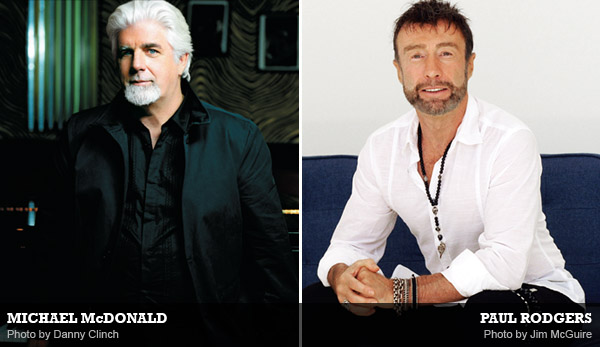
Michael McDonald
Born in St. Louis, MO on February 12, 1952, Michael McDonald grew up in a musical family that respected musicians and songwriters: Irving Berlin, Rodgers & Hammerstein, Cole Porter. Self-taught on banjo and piano, McDonald moved to LA to pursue a music career in his late teens, and soon began performing and recording with Steely Dan, with which he collaborated through the end of the ’70s.
Meanwhile, in 1975, McDonald began working with the Doobie Brothers, which scored a major hit the following year with Takin’ It To The Streets, an LP that made McDonald’s vocals as recognizable to mainstream America as the blue-eyed soul of Rod Stewart, Van Morrison and Daryl Hall. The Doobies disbanded in 1982, although they reformed in 1987, intermittently joined by McDonald ever since.
McDonald’s many distinctive hits with the Doobies did not shackle him to the group; instead, his laid-back, soul-inflected baritone has made him a sought-after session singer who’s worked with Ray Charles, Aretha Franklin, Elton John, Bonnie Raitt, Little Feat, Joni Mitchell, Vince Gill…and counting. At the same time, his solo career blossomed with hit albums and singles like “I Keep Forgettin’,” and duets “On My Own” (with Patti LaBelle), and “Yah Mo B There” (with James Ingram), which added a Grammy to McDonald’s collection, five in all.
His latest efforts have focused on his consistent solo touring—he’s co-headlining with Toto this summer—and in collaborating with Boz Scaggs and Steely Dan’s Donald Fagen as the Dukes of September, whose recently-released concert video pays tribute to the R&B and soul that has always inspired McDonald.
Paul Rodgers
Paul Bernard Rodgers was born December 17, 1949 in Middlesbrough, England, into a working-class family of seven children. He took up singing, modeling his vocal style on that of soulful singers like Rod Stewart, and by age 13, began performing in clubs. During a brief go with the Roadrunners, Rodgers glimpsed London club life and soon moved there, forming a blues band, Brown Sugar, during London’s blues revival period in the mid- to late ’60s.
Rodgers then caught the eye of Paul Kossoff , who enthusiastically joined up with Rodgers, along with drummer Simon Kirke and bassist Andy Fraser; when legendary London bluesman Alexis Korner saw them play, he suggested the group call themselves “Free.” Two years later, Free’s “All Right Now” (co-written by Rodgers and Fraser) became a worldwide hit and has remained an enduring rock classic. Free was short-lived but busy: in its three-year existence (followed by a brief reunion shortly thereafter), the band sold more than 20 million albums and played more than 700 arena and festival concerts.
Almost immediately after Free disbanded, Rodgers and Kirke formed Bad Company with other stars from King Crimson and Mott the Hoople. By the end of the decade, Bad Company had recorded several multiplatinum albums, producing rock staples like “Feel Like Makin’ Love” and “Rock ‘n’ Roll Fantasy.”
Rodgers has slowed down little in his nearly five decades onstage. Since Bad Company, he’s released a successful run of albums under his own name and with the Law, the Firm and Queen + Paul Rodgers. He’s also played innumerable benefit concerts with rock’s greatest artists, including but not limited to Adele, Ringo Starr, Sting, Eric Clapton, Sam Moore, Jeff Beck and Michael McDonald. His latest album, 2014’s The Royal Sessions, a tribute to his soul and blues roots, was recorded at Memphis’ Royal Studios.
![]()
What are you listening to right now?
Michael McDonald: I’m one of those musicians who have almost never owned a record player. I had a record player during the time I was with the Doobies, and I hear music all around, but I could probably do a better job of listening. I listen to my friend Gerald Albright’s record that he’s just releasing. It’s always interesting to hear how other artists are producing records, and what the songs are; it all comes down to the songs. I’m always looking for something that sounds like somebody’s doing something different, not just rehashing something they’ve done so many times before.
Paul Rodgers: I’m listening to vinyl right now—I went back to some of the things I listened to years ago and have set myself up with a player—and they sound as good or better now than they did when I first heard them.
What was the first record you ever bought?
MM: I lived with my two sisters and my mother, and our record collection was usually something that belonged to my sister, and usually something we fought over. I was allowed to sneak one out and play it once in a while. 90% were Ray Charles albums.
PR: “Red Beans and Rice” by Booker T. & the MG’s, and I like the B-Side just as much: “Be My Lady.” I was 14.
What was the first instrument you played?
MM: The first instrument I played the least bit seriously was the tenor banjo. My grandmother had a beautiful old Gibson Oriole banjo—I still have it to this day. It’s one of my prized possessions. I played it for many years and just recently had it restored. I don’t play it enough, but I have used it on a couple records recently.
PR: My father bought me a six-string guitar, but it didn’t last long, so I learned the bass, which I thought would be easier to play because it had four strings instead of six.
What brought you to the instrument you now play?
MM: When I was about ten, my dad went out and found, for 25 bucks, a giant upright grand. It’s literally a grand piano standing up, a huge harp in it. I was a pretty spaced-out little kid, and I’m pretty sure my mother and father thought there wasn’t much hope for me. Anything that I showed the least bit of aptitude for, they would try to provide it for me in the hopes that I would not be sleeping in the park by the time I was 16. Of course I put tacks in and tried to play ragtime.
My father had a beautiful Irish tenor voice, a little bit of an Irish Tony Bennett/Frank Sinatra, and when I was a kid, I would play banjo for him in saloons around St. Louis. My mother would send me out with him to make sure he behaved himself, so many of my Saturday afternoons and evenings were spent on the windowsill behind dad’s piano player, with a Coca-Cola. These were the people that I learned to play piano from—they were really great musicians. I was not formally trained in any instrument, and as recently as this week, I’ve been bemoaning my inability to sit down and improvise or play classical pieces.
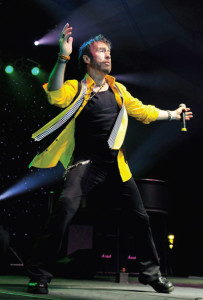
PR: I really am a vocalist. I can play guitar and a bit of piano. You have to be very creative to pick out a tune, and every instrument has a different angle on songwriting.
Who would you like to write with that you haven’t?
MM: I started off writing alone, but over the years, I’ve kind of gone into collaboration; now it’s rare when I write alone. I would love to write songs with Stevie Wonder. We’ve actually talked about it, and I think I’ve just been gripped in fear ever since.
PR: Songwriting is a very loosey-goosey endeavor, and working with someone else is hard to predict. I’ve been writing with Perry Margouleff .
What musician influenced you most?
MM: Many, but if I had to point to one, it would probably be Ray Charles.
PR: As a singer, probably Otis Redding, although there have been many. He had a gospel quality, and a big, warm voice full of vulnerability. On The Royal Sessions, we did three days of sessions with Boo Mitchell, all analog, mostly live from the floor. We did “I’ve Been Loving You Too Long” which I’ve never sung before, and when we were finished, everyone just went “Wow!” We knew we were done, one take. Besides Redding, there’s Wilson Pickett, Aretha Franklin, Sam Cooke.
What was the song or event that made you realize you wanted to be in music?
MM: I can still see the moment. My aunt lived down in St. Louis in an old apartment building with marble floors and foyer, and a hallway that led to a big glass front door. I remember walking down this big echo-y hallway, tapping my feet as I walked, kind of shuffling, and I was making up this melody, like singing in the shower.
I remember stopping as I was opening the door to walk outside, and saying, “I can write a song, make up music.” I walked down the street and I distinctly recall that feeling, having all the confidence in the world, thinking, This is what I can do. I’m pretty good at this. And, of course, I have never felt that way since.
PR: There were many songs that inspired me—songs by Little Richard, Chuck Berry—that made me want to be a musician, but when I was about 14 and playing bass and singing with the Premiers—“Everybody Needs Somebody”—I handed off the bass to someone in the front row, and realized a powerful connection. That’s the moment I wanted to be a musician. Taking that bass off and finding that connection to the audience. I love to do it, and I love to see it done by other musicians.
What was it like the first time you didn’t have to carry your own gear?
MM: I first had a team with the Doobies. I remember feeling like, Wow, this is a whole other level of working in this profession. With Steely Dan, just a couple guys did the whole thing, and they were working much too hard to confer with me, where with the Doobies, there was a big crew; we had techs and crew guys, and when I walked into rehearsal, guys were asking me questions and I had no idea how to answer them. I was 23 years old and went from being a guy who drove around LA looking for an amp to borrow for the gig that night to, all the sudden, guys wanted to design a monitor system for the piano—things that I knew nothing about.
PR: At first, I was playing with the blues band Brown Sugar at the Fickle Pickle, and Paul Kossoff came up with flared Levis and we played four blues tunes: “Stormy Monday Blues” and a couple of others. He was in a group called the Black Cat Bones, and we were both listening to the same music—Cream, Hendrix, B.B. King—and that night we said, “We have to be in a band together.” From there, it was a long, slow process. We were very, very hungry.
Who would you like in your rock ‘n’ roll heaven band?
MM: I would probably start off with Billy Preston on keyboards, or Ray Charles; Leon Russell is such a great player, too. I play with a great guitar player, Bernie Chiaravalle, but someone from my past would be Jeff Beck. On bass, Tommy Sims or Marcus Miller, just off the top of my head, or Willie Weeks. Jeff Porcaro is one of my favorite drummers; Dan Needham, a guy I play with right now, is a world-class drummer; Shannon Forrest is one of my favorites as well.
Banjo?
If I did, it wouldn’t be me playing. I saw a Latino band the other night, and they used a lot of different instruments, and one of them was a banjo. Banjo has a lot of potential that’s untapped.
PR: On guitar, Jimi Hendrix, although I love his voice, too, and if here were in the band, he’d also have to sing, then where would I be? Jimi went too far out. I wish we could have seen how he would have developed over the years. He gave everything to fame. David Gilmour on guitar; John Bonham on drums; Pino Palladino on bass.
Horns?
What a luxury! I’d use the Memphis Horns/Royal Sessions players we had in Memphis.
What’s your desert island album?
MM: Donny Hathaway or Ray Charles. I couldn’t imagine putting on a Ray Charles or Donny Hathaway record and thinking, God, I don’t want to hear that right now.
PR: Otis Blue [Otis Redding]. I used to play that record constantly; it was on all day in the background for years.


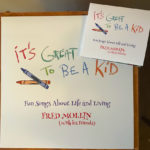
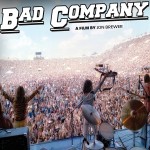
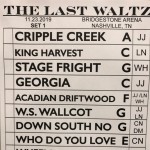


Be the first to comment!